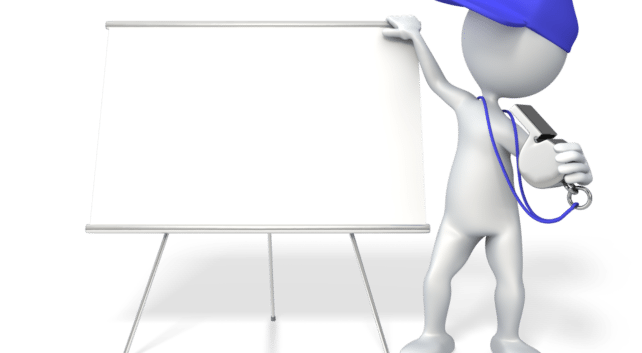- sales
- Blog post
Coaching salespeople through slumps
Salespeople have at least one thing in common with pro baseball players: slumps. All major leaguers – even .300 hitters – go through extended periods where they can’t get a hit. Pressure builds. Confidence erodes.
It’s the same with salespeople, even seasoned vets. A long-term customer bails with no warning. A sure-thing prospect fails to convert. Calls don’t get returned. And the funnel’s drying up. A sales rep caught in a rejection cycle like this can get downright demoralized. And like the ballplayer, the rep’s attitude of helplessness can be the biggest obstacle to getting back on course.
So how can you coach reps out of a slump?
It starts by understanding what a slump is. It’s more than a string of losses — even the best salespeople win some and lose some. A slump is a psychological response to those losses that results in reps abandoning good sales behaviors.
You may be familiar with the concept of “learned helplessness” — a psychological condition where people come to believe that they have no power to change their lives or improve their situation. What you may not know is that this concept originated in a study involving salespeople. And it’s directly relevant to the problem of sales slumps.
Beginning in the 1980s, University of Pennsylvania psychologist Martin Seligman began researching why some salespeople succeeded while others fail. In a study involving sales reps at a major insurance company, he found that one factor outweighed all others in determining who’d succeed at sales. That factor was how salespeople talked to themselves when they failed. He called it “explanatory style” and concluded that some salespeople explain failure in ways that increased their sense of power and control, while others explained it in ways that made them feel helpless.
Seligman mapped explanatory style along three dimensions:
Internal vs. external. In other words, was the failure my fault, or was it created by external circumstances? You might think that people who “take responsibility” for their failures have a healthier outlook, but Seligman found otherwise. People who didn’t take failure personally dealt with it much better. If, say, a rep encounters a rude prospect, successful ones tell themselves, “He must be having a bad day.” Unsuccessful reps think, “I’m ticking people off.”
Universal vs. specific. When successful reps lose a prospect, they focus on why this specific account failed to convert. For example: “They had cash flow problems — but that doesn’t mean my next prospect will have cash flow problems.” Unsuccessful reps use universal language such as, “Nobody cares about quality anymore.”
Permanent vs. temporary. Successful reps see a string of rejections as a temporary setback: “I had a bad run, but things will work out in the end as long as I’m doing the right things.” Unsuccessful reps see problems as permanent and beyond their control, as in “Our product isn’t good enough” or “Customer needs have changed” or “I suck at sales.”
To bust reps out of a slump, coaches need to help them create external, specific and temporary explanations for setbacks. That’s what will allow the salesperson to get back into the game and start scoring some wins. It may take time to overcome self-defeating beliefs. But it’s vitally important for coaches to sit down with struggling reps and help them frame their failures in ways that make them feel empowered instead of helpless.

Get a demo of all our training features
Connect with an expert for a one-on-one demonstration of how BTS Total Access can help develop your team.



